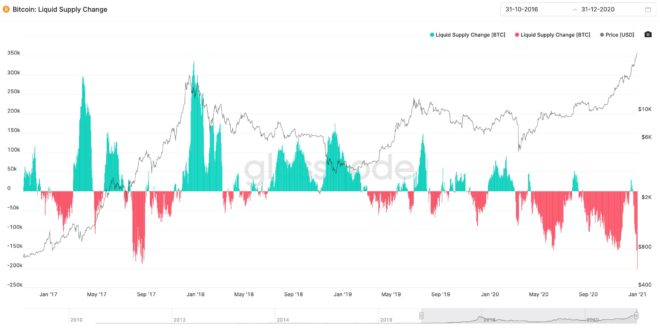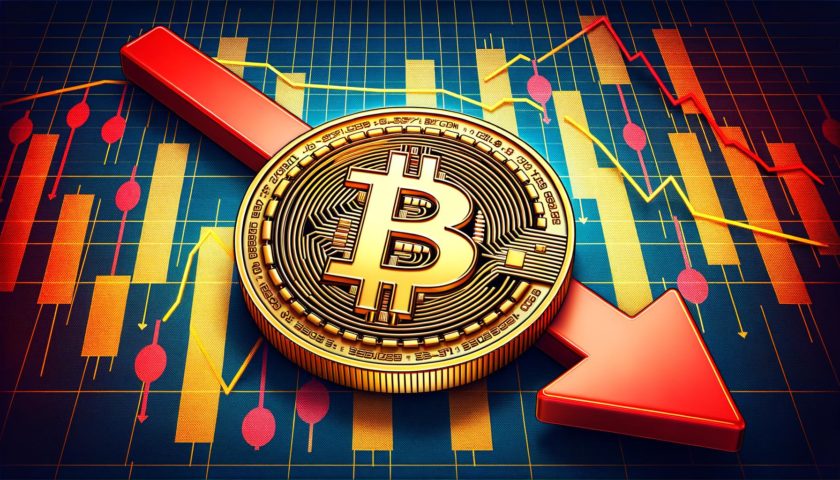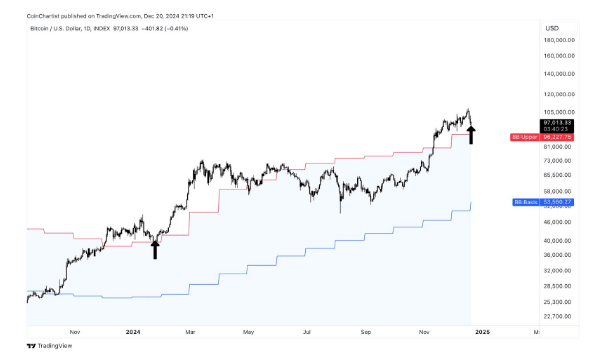Bitcoin (BTC) investors are quickly storing most of the available coins away, and they are not for sale, new data at the start of 2021 reveals.
Statistics from on-chain analytics resource Glassnode originally released on Dec. 29, 2020 confirm that almost 80% of the Bitcoin supply is illiquid.
78% of BTC supply illiquid
The changes in the composition of the Bitcoin market have become well known. As new all-time highs above $35,000 emerge, so too has a narrative that weak hands are selling their holdings to strong hands and institutions are buying from whales.
This reshaping of the Bitcoin investor profile implies more long-term hodling and less speculative activity, which itself boosts Bitcoin’s image as a worthwhile investment and perpetuates the cycle of hodling and price increases resulting from a liquidity squeeze.
For Glassnode, this process has now been quantified. Number-crunching from Rafael Schultze-Kraft, the firm’s chief technology officer, estimates that of the extant Bitcoin supply of 18.6 million BTC, 78% is unavailable.
“Only 4.2 million BTC (22%) are currently in constant circulation and available for buying and selling,” he concluded.
“It’s worth looking at how this trend has evolved in the past. Looking at the change of supply in each categoy from the beginning of the year, we can see a clear upwards trend of Bitcoin illiquidity. This is indicates that the present bull market is driven by the staggering amount of illiquidity.”
Willy Woo on liquidity trend: “It’s bullish”
Glassnode is not the first to voice the belief that investors are fighting over Bitcoin’s fixed supply. Other commentators have previously concluded that a Bitcoin arms race is providing the fuel for one all-time high after another.
“Latest buying has been driven by participants who are long term holders. This is bullish, this rally is far from done,” one of them, statistician Willy Woo, commented on Glassnode’s findings.
“This is the change in #Bitcoin’s supply moving between participants. When more coins move from liquid (active traders) to the illiquid (HODLers), it’s bullish.”
The economics of Bitcoin’s fixed supply and decreasing emission is extensively covered in The Bitcoin Standard, a popular book by Saifedean Ammous. Crucially, as miners receive less and less “new” Bitcoin per block after each block subsidy halving event, Bitcoin’s inflation rate drops — it is currently at 1.8%.
Any proposal to change the dynamics of this status quo and thus increase inflation would need full network consensus, and as this would ultimately make every participant poorer, no one has an incentive to agree.
Since the Glassnode data was published, meanwhile, BTC/USD has already gained 35%.




